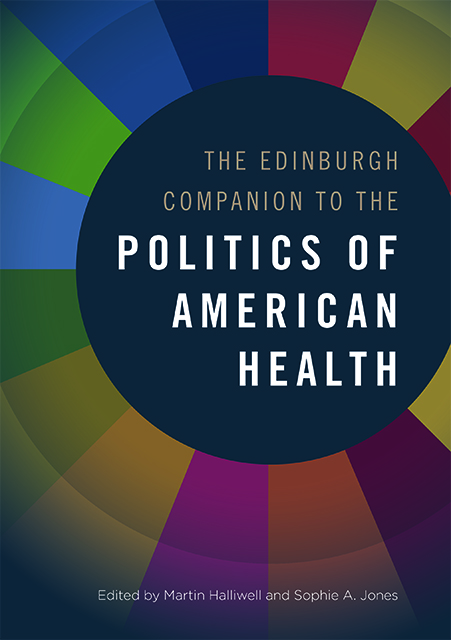Book contents
- Frontmatter
- List of Contents
- Notes on Contributors
- Introduction: The Political Landscapes of American Health, 1945–2020
- I Geography, Community and American Health
- II Critical Health Conditions: Debates and Histories
- III The Politics of Children's Health
- IV The Institutional Matrix of Health Care
- V The White House, Congress and Health Reform
- VI Justice, Ethics and American Health
- VII Public Health and Global Health
- General Bibliography
- Index
35 - Pandemics and the Politics of Planetary Health
Published online by Cambridge University Press: 12 August 2023
- Frontmatter
- List of Contents
- Notes on Contributors
- Introduction: The Political Landscapes of American Health, 1945–2020
- I Geography, Community and American Health
- II Critical Health Conditions: Debates and Histories
- III The Politics of Children's Health
- IV The Institutional Matrix of Health Care
- V The White House, Congress and Health Reform
- VI Justice, Ethics and American Health
- VII Public Health and Global Health
- General Bibliography
- Index
Summary
Declaring itself the Messenger, a catastrophic communicable virus that has slowly fused with its human host delivers an alarming Message in Chuck Hogan's 1998 novel The Blood Artists. The Message, the creature explains, is ‘Plainville’, the name with which the two Centers for Disease Control and Prevention virologists scrambling to contain the nearly 100 per cent fatal outbreaks have christened the disease. The puzzling and apparently disconnected outbreaks, as they soon learn, are the deliberate work of the virus–human hybrid, whose ‘Message’ is environmental: humanity is consuming its ‘host earth’. It is impossible to know whether it is the virus or its synergetic human host, an environmentalist named Oren Ridgeway, who explains the entity's ‘mission’: ‘Innocent plants and sinless animals will be spared. Only the criminal man. The planet will rejoice as I rid its crust of his plague.’ Even as a college student, Oren, a budding environmentalist, ‘didn't like people’, we learn from the lone survivor of Plainville, a former love interest of the young misanthrope: ‘He said people were ruining the earth. He said we had been given this great gift, and we were just stomping all over it.’
Plainville/Ridgeway – or (Patient) Zero, as they dub him – is a familiar character in the epidemiological horror fiction and film that proliferated in the mid-1990s. The aliens of Robin Cook's novel Invasion (1997) – a rewriting of Jack Finney's 1955 novel The Body Snatchers – are militant environmentalists, and a sudden concern for the planet is a sign that humans have been body snatched. As one uninfected teenager complains, her parents are ‘like … different people. A few days ago they had like zero friends. Now all the sudden they’re having people over … at all hours of the day and night to talk about rain forests and pollution and things like that.’ But environmentalist protagonists need not be hybrid viruses or aliens to seed outbreaks on behalf of what they see as a violated planet. The eponymous protagonist of Tom Cool's novel Infectress (1997) is working on a supervirus that will kill 98 per cent of the human population in order to ‘save the planet from this horrible infection, this disease of humanity’.
- Type
- Chapter
- Information
- The Edinburgh Companion to the Politics of American Health , pp. 601 - 617Publisher: Edinburgh University PressPrint publication year: 2022



